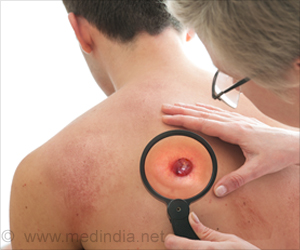New mobile app, guided by Artificial Intelligence (AI) offering personalized recommendations to breast cancer patients in rural Georgia has been developed.
Highlights:
- A mobile app guided by Artificial Intelligence (AI) offers personalized support to breast cancer patients in Georgia
- MyPath app adapts to every stage of a patient’s cancer diagnosis and treatment
- App can help doctors and cancer navigators regularly connect with patients
- The research team hopes to expand the app use to cancer survivors as well
Read More..
MyPath – The Mobile App
The app named MyPath has been designed to adapt to every stage in a cancer patient’s journey - right from the diagnosis to treatment and surgery. The app runs on a tablet computer and the information available on it gets regularly updated based on the patient’s progress. For example, if a patient is scheduled for surgery, MyPath will help them with what they need to know the day before.Elizabeth Mynatt, Distinguished Professor in the School of Interactive Computing at Georgia Tech and Executive Director of the Institute for People and Technology is the principal investigator of the research. Speaking about the effectiveness of the app, Dr. Mynatt said, “Patients have told us, ‘It just seemed to magically know what I needed’.”
In holistic cancer care, the MyPath app, with the use of AI, is the first that is capable of personalization, believes Dr. Mynatt. The app is capable of addressing a range of relevant issues like social and emotional needs of patients in addition to incorporating their medical data.
Dr. Mynatt will be presenting her work at the annual meeting of the American Association for the Advancement of Science on February 15, 2019.
Recognition in the U.S
iSchools, a consortium of around 100 institutions worldwide (including Georgia Tech), dedicated to advancing the information field, recognized MyPath in January. The 2019 iSchools Doctoral Dissertation Award has been presented to Maia Jacobs, a Ph.D. from Georgia Tech for developing MyPath in her dissertation research.Commenting on Jacobs’ work, “The Award Committee felt [that Jacobs' work] was timely and important, and lauded its impact on how patients manage their health” the iSchools mentioned. Currently, a postdoctoral fellow at Harvard, Jacobs is exploring the option of expanding MyPath to other diseases.
In 2016 the research was honored when it featured in a report to President Barack Obama by the President's Cancer Panel. A Georgia Tech story, back at the time commented that the report, ‘Improving Cancer-Related Outcomes with Connected Health,’ aimed to “Help patients manage their health information and participate in their own care.”
Inception of the App
Development of the app had begun six years ago when Dr. Mynatt and her team were working with the Harbin Clinic in Rome, Georgia. “They have a tremendous program in holistic cancer care where they recognize that their patients, who are from a larger rural area, face a variety of challenges to be able to successfully navigate the cancer journey,” Dr. Mynatt observed.The doctors and cancer navigators at the Harbin were looking for superior ways to stay connected to the patients on a regular basis. The navigators, who guide patients through the cancer journey, realized that the interactions with patients were very frequent at the diagnosis stage, but lessened over time. Because of this a lot of information available with the navigators, for example, about lowering anxiety, remains uninformed to the patients.
“We wondered how technology could amplify what these great people are doing,” said Dr. Mynatt.
How Does MyPath Work
At the onset, a mobile library of resources compiled from the American Cancer Society and certain other highly regarded organizations is available in the app. It is then personalized with each patient's diagnosis and treatment plan, also including dates for specific procedures. Patients are also provided with the option to complete surveys regularly that would help the system as well as the caregivers to understand their changing needs and symptoms.Consequently, a system that is capable of providing resources and suggestions specific to personal situations becomes available to all patients. For example, a patient with stage 2 breast cancer scheduled to undergo lumpectomy on a specific date, will be suggested relevant articles to prepare for the surgery by clicking the category ‘Preparing for Surgery’ on MyPath. Similarly, a patient who has reported nausea in the system's survey will find a set of resources that can help combat the side effect. Quick access to contact information for specific caregivers is also available on the app.
This level of personalization is not available on the internet or other apps. Hence a patient may have to browse through a huge volume of complex, technical information that may be irrelevant. On the other hand, “Every day MyPath puts the right resources at your fingertips to help you through your cancer journey,” says Dr. Mynatt.
Going Beyond Medical
Not all features of the MyPath are directly associated with cancer. ‘Emotional Support’ and ‘Day to Day Matters’ are some of its most popular options that are frequently used by patients. “When we asked them about how they used the tablet for healthcare, many patients would talk to us about playing Angry Birds, which they would download to distract them during chemo sessions,” Dr. Mynatt remarked.Based on the feedback from MyPath’s predecessor, the My Journey Compass, changes including the personalization have been made in this second generation version. The team, hoping to expand the use of the app to cancer survivors faced with additional challenges like hormone replacement therapy, is an example of continued developments in the research. The team is also working on designing a downloadable version of the app for individual patients, which would make it available for many more users.
Source-Medindia















